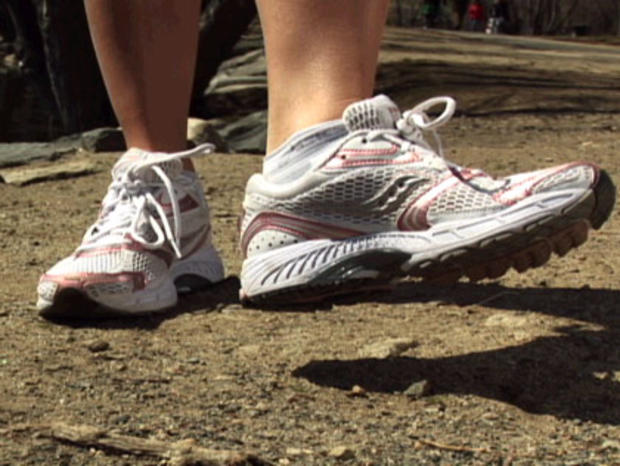Avoiding Injury When Walking
By Joanne Pallotta, Beth Israel Deaconess Medical Center Correspondent
Unlike running, there is not a specific set of injuries that doctors or physical therapists tend to see in walkers.
"Regular walking injuries are actually quite rare," says Dr. John-Paul Hezel in the Division of Sports Medicine and Shoulder Surgery at Beth Israel Deaconess Medical Center.
While walkers will have occasional knee, back, hip, or other joint pain, these are most often seen in power walkers - people who walk very fast for long distances. But, Dr. Hezel calls these extreme cases and attributes them to overuse - doing too much and not giving the body a rest.
"Walking is the easiest and most efficient way for the majority of the population to keep up good cardiovascular health," says Dr. Hezel.
"Unless there is a specific cardiac, pulmonary, or other medical contraindication to exercise, walking is one of the safest things you can do."
If you lead a very sedentary lifestyle, however, and want to begin to walk, Dr. Hezel gives advice for starting a regimen:
- Know your limitations
- Monitor your intensity
- Avoid doing too much too soon
- Be aware of your surroundings
- Wear comfortable shoes
- Get clearance from your doctor
The key to getting the most out of walking is to get your heart rate up to mild or moderate levels, depending on your experience. Walking also does not require a specific warm-up phase.
"Just start moving," says Dr. Hezel. If you're walking too much when you're not ready, this might put a strain on your muscles, joints, and ability to control your breathing. "It'll be too much when your intensity is either too high or you've gone too quickly or too far." You know you're in the right place when you can go a certain distance, pain-free and completely comfortably.
While it may sound obvious, Dr. Hezel cautions you to be aware of your surroundings. You're more likely to get hurt by stepping in a pothole or slipping on ice than you are overusing your legs. Carry a walking stick for support, wear comfortable shoes, and, most importantly, remember to have fun.
Above content provided by Beth Israel Deaconess Medical Center. For advice about your medical care, consult your doctor.
Posted May 2014




